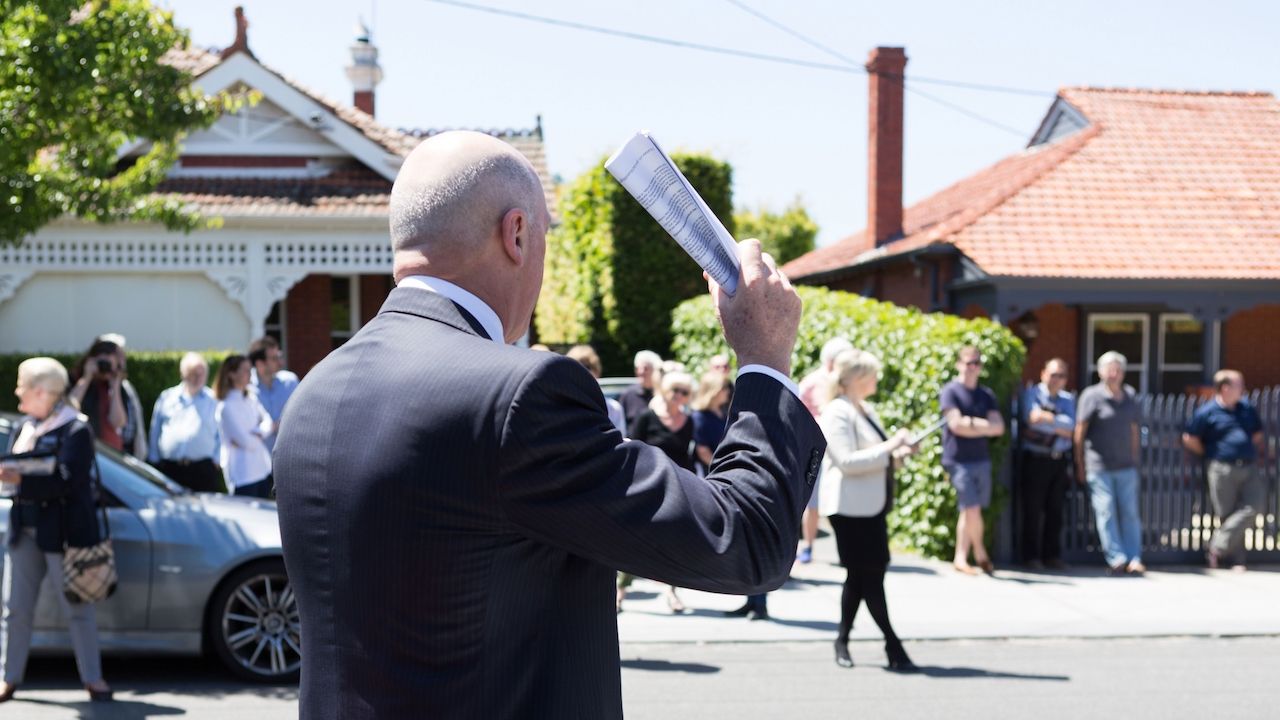You find the right property, it is heading to auction, and the fear of missing out arrives fast. Do you place a strong early offer to shut down competition, or do you wait and test the market on auction day? Both paths can work. The smarter choice depends on your goals, the seller’s motivation, and the local market pulse. On the Gold Coast, that pulse is running high, with tight supply and strong demand creating fast decisions and quick outcomes.
At COAST Buyer’s Agency, we help buyers weigh those moving parts and choose a strategy that protects both price and position. The aim is simple. Secure the right home or investment without paying more than the market requires.
Let’s jump into whether or not a pre-auction offer should be part of your buying strategy or not.
What a pre-auction offer actually is
A pre-auction offer is a formal offer submitted before the scheduled auction date. If the vendor accepts, the property is sold before the auction, and the campaign ends. If the vendor rejects or uses your offer to test market depth, the campaign continues to auction.
When buyers consider a pre-auction offer, they usually want one of three things:
- Certainty that the home is secured before a competitive auction
- Speed to move on with finance and settlement
- Control over terms that might be harder to negotiate in a crowded auction
Vendors consider pre-auction offers for very different reasons. Some want a quick, low-risk result. Others want to surface the strongest buyers early, then leverage that interest to set a higher reserve on auction day.
The upside of making a pre-auction offer
When the timing and terms are right, a pre-auction offer can be a powerful play.
Reduce competitive risk
If the property is unique and has broad appeal, going early can remove the chance of being outbid at a public auction.
Create clean terms that sellers value
Shorter settlement, flexible dates, and minimal conditions can matter as much as price. Well-structured terms can lift the overall attractiveness of your offer.
Lower stress and faster decisions
Some buyers perform better in private negotiations than in high-pressure bidding. If that is you, a pre-auction pathway may produce a better outcome.
Match market reality
In a hot market with low stock, realistic offers land deals. Buyers who avoid “lowballing” and instead present fair, data-led offers will outperform buyers who chase unrealistic discounts.
The downside to understand before you go early
There are real trade-offs. Name them upfront to avoid regret.
1. You could overpay
Without the price discovery of an auction, you have fewer signals for true market value. If you go too high too soon, you may pay more than needed.
2. Less transparency
In private negotiation, you will not see competing bids. You must rely on comparable sales, agent guidance, and your own ceiling.
3. Your offer can be used as leverage
Vendors sometimes take a strong early offer and quietly invite others to beat it. If that happens, your offer helps set the pace for someone else’s win.
4. Momentum can backfire
If your pre-auction offer is weak, you risk advertising that you are not the buyer to beat. In some cases, you strengthen the seller’s resolve to hold for auction day.
This is why we advocate a balanced, evidence-based approach. Build your offer around comparable sales, local trend data, and seller drivers. Avoid the common trap of starting too low in a fast market.
5. Buying under auction conditions
If you make an offer prior to auction, you will need to buy under auction terms, which means the seller will usually require the buyer to waive their mandatory 5-day cooling-off period, building and pest or finance terms. Essentially, the contract of sale will be unconditional as soon as the buyer and seller have signed the contract.
Local market context that shapes the call
The Gold Coast is experiencing the conditions that make pre-auction decisions more frequent and more consequential.
Tight supply and strong demand
Recent reporting highlights a surge in buying power, very low housing stock, and a growing local economy. This combination is described as the perfect recipe for a boom, with population growth, low vacancy, and delays in new stock delivery all applying pressure.
In short, quality listings attract fast competition.
A price gap that is closing
The Gold Coast median house price is catching Sydney at a faster pace than earlier forecasts, shifting buyer attention and competition toward the Coast. For buyers, that means fewer bargains and more need for well-targeted offers.
Why lowballing underperforms
With stock tight and demand elevated, low offers are often ignored, can damage credibility with agents, and waste critical time. Serious buyers secure properties with realistic, clean terms that reflect current market value.
How to read the seller’s motivation
Understanding why the seller is on the market is the key to timing and terms.
Start with the campaign signals. A short sales window, fresh styling, and premium photography can point to a seller aiming for competitive tension. A longer campaign, price guide adjustments, or a quiet midweek open may suggest a seller who values certainty over maximum price. Ask the agent direct questions without being adversarial. Are early offers being encouraged? What terms would the seller appreciate? Is the vendor relocating, already committed elsewhere, or seeking a quick settlement?
Layer in the data. Days on market compared with suburb averages, recent comparable sales, and the volume of similar stock all shape the seller’s mindset. If the property is unique, the seller may expect a headline result. If there are several close substitutes, certainty and clean terms can tip things in your favour.
Finally, read the human factors. Sellers who have already purchased often prefer speed. Sellers who are testing the market may prefer to keep the auction intact. Your offer is not only a number. It is a solution to the seller’s specific problem.
How to structure a winning pre-auction offer
Treat your offer like a project. Each step has a job to do.
Step 1. Define value and your ceiling
Use recent comparable sales, building features, land value where relevant, and the property’s replaceability to set a clear top price. Decide your absolute walk-away number before emotions rise.
Step 2. Line up finance and conveyancing
Have written pre-approval, proof of funds for the deposit, and a conveyancer or solicitor ready to review the contract quickly. If the agent is fielding multiple buyers, speed and readiness will separate you from the pack.
Step 3. Clarify how early offers are handled
Ask the agent whether the seller will consider early offers, whether all buyers will be notified, and whether a boardroom auction or best-and-final process is likely. Knowing the process prevents surprises.
Step 4. Choose terms that sell your offer
Strong price helps, but terms can seal it. Shorter settlement, flexibility on dates, and limited or no conditions are often seen as equal to extra money. In Queensland, offers made prior to auction are commonly presented on contract terms that are comparable to auction day. Many buyers choose to match those terms with minimal conditions. Always seek legal advice before waiving any protections.
Step 5. Present with clarity
Put the offer in writing with price, deposit amount, settlement date, inclusions, and time limit for acceptance. A clear expiry creates urgency without pressure tactics. If you have strong comparable evidence, include a short rationale so the seller understands the logic behind your number.
Step 6. Negotiate like a professional
Don’t expect counter-offers. It’s unlikely the seller will reveal their best price as this will ‘show their hand’ if negotiations fail and they decide to proceed with the auction. Keep your ceiling in sight, stick to your plan, and avoid bidding against yourself. If the seller moves to a best-and-final round, give a number that you will not regret if the property sells for one increment more.
Step 7. Keep Plan B alive
If the offer is declined, do not overreact. Confirm your auction strategy and let the agent know you remain engaged. A composed buyer is often the one who wins on auction day.
Quick decision checklist
Use this as a fast filter before you go early.
Make a pre-auction offer if
- The property is genuinely unique and hard to replace
- Your finance is ready, and you are comfortable presenting minimal conditions
- The seller values certainty and quick timeframes
- Local stock is tight, and demand is clearly strong
- You can offer terms the seller prefers, such as a shorter settlement period
Wait for auction if
- Value is unclear, and you want price discovery
- There are close substitutes you would also consider
- You are comfortable with public bidding and have a disciplined ceiling
- The seller appears committed to an auction-led result
Closing guidance and next steps
A pre-auction offer can be the smartest move you make, or an unnecessary premium. The difference is preparation. Know your ceiling, read the vendor’s drivers, and present terms that solve their problem without creating one for you.
If you want deeper suburb-level context before you act, download the Gold Coast Property Report 2025 for local trends, price movements, and stock insights. When you are ready to talk strategy, book a free strategy session with COAST Buyer’s Agency. We will map your plan, recommend whether to go early or wait, and handle the negotiation or bidding so you can buy with confidence and get home sooner.
General information only. Always seek legal and financial advice for your situation before signing a contract.




